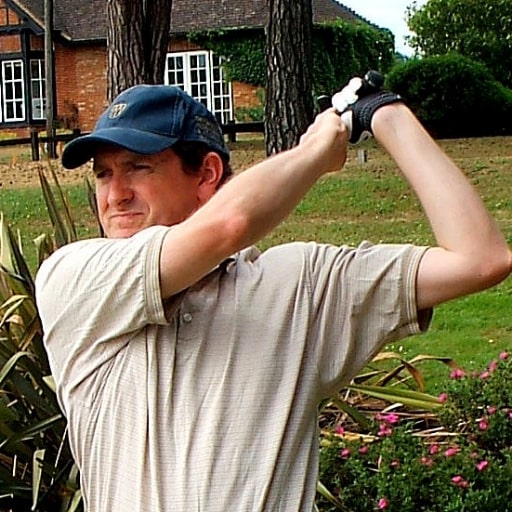32 Best Golfers Of The 70s
Jack Nicklaus was still topping leaderboards, but who were the emerging talents and who are other best golfers of the 70s?
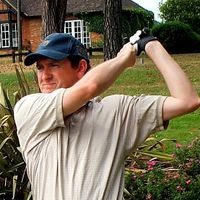
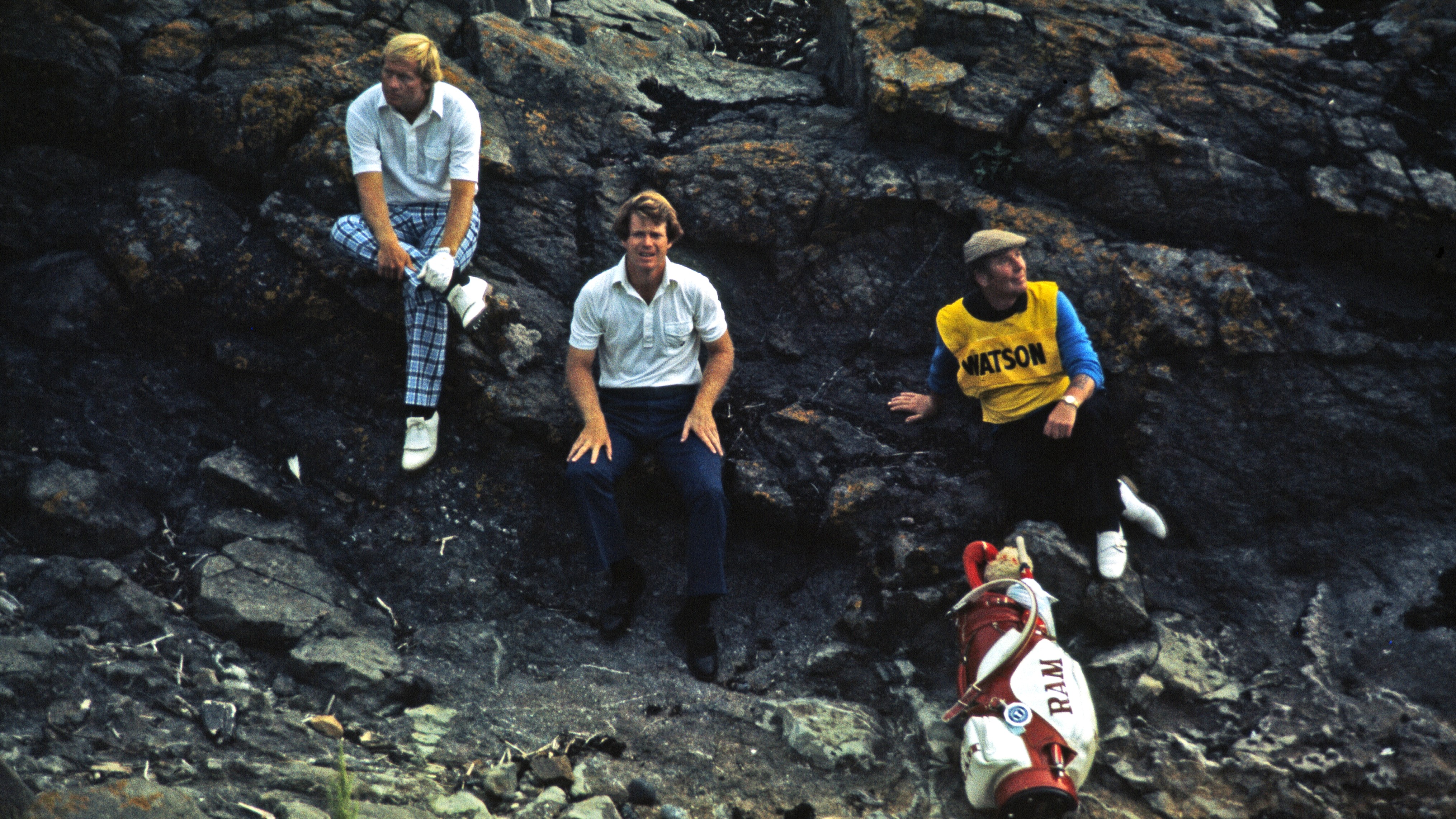
Subscribe to the Golf Monthly newsletter to stay up to date with all the latest tour news, equipment news, reviews, head-to-heads and buyer’s guides from our team of experienced experts.
You are now subscribed
Your newsletter sign-up was successful
Want to add more newsletters?

Delivered daily
Daily Newsletter
Sign up for all the latest tour news, gear reviews, head-to-heads and buyer’s guides plus features, tips from our top 50 coaches and rules advice from our expert team.

Once a week
Kick Point
Sign up to our free Kick Point newsletter, filled with the latest gear reviews and expert advice as well as the best deals we spot each week.

Once a week
Women's Golf Edit
Sign up to our free newsletter, filled with news, features, tips and best buys surrounding the world of women’s golf. If you’re a female golfer, you won’t want to miss out!
Best Golfers of the 70s
The Seventies in golf saw the continuing dominance of Jack Nicklaus – the Golden Bear – and the start of his rivalry with his friend Tom Watson, which brought about one of the greatest Opens ever. The decade also saw the emergence of a Spanish superstar. So who were the best golfers of the 70s?
Tommy Aaron
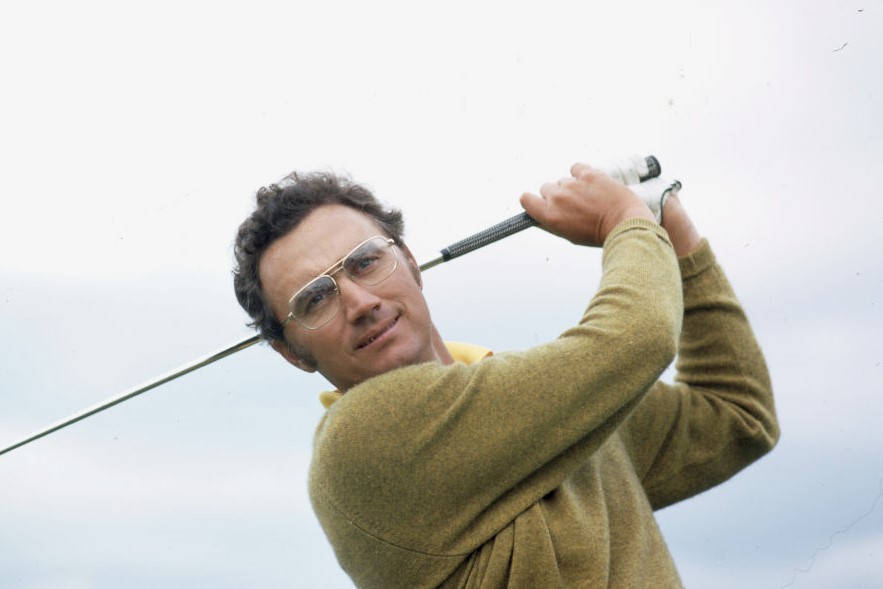
Tommy Aaron only won twice on the PGA Tour. It could have more as he was involved in four playoffs, all of which he lost. In 1970 he won The Atlantic Classic and then, aged 36, he won a Major, the 1973 Masters. Aaron had been one of five co-leaders at halfway, but had to come from fifth place and four shots behind after 54 holes to win the Masters after his third round 74. But a final round with six birdies and two bogeys sealed his one-shot victory.
Charles Coody
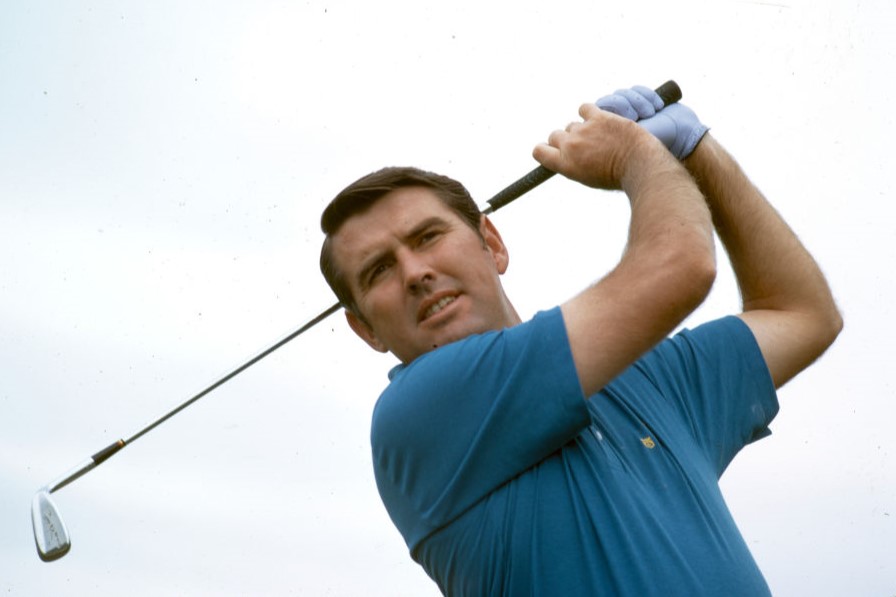
Texan Coody was co-leader with Jack Nicklaus going into the final round of the Masters in 1971. Coody had led the Masters in 1969 with three holes to go, only to finish fifth. Nicklaus was expected to win this time round as Coody had a reputation of being a fine shotmaker who seldom came top. But at Augusta in 1971 Coody carded a final round 70 to win by two shots. He added to his near misses, however, in the PGA Championship of 1976 when he lead by two shots after three rounds, then shot 77.
Donna Caponi
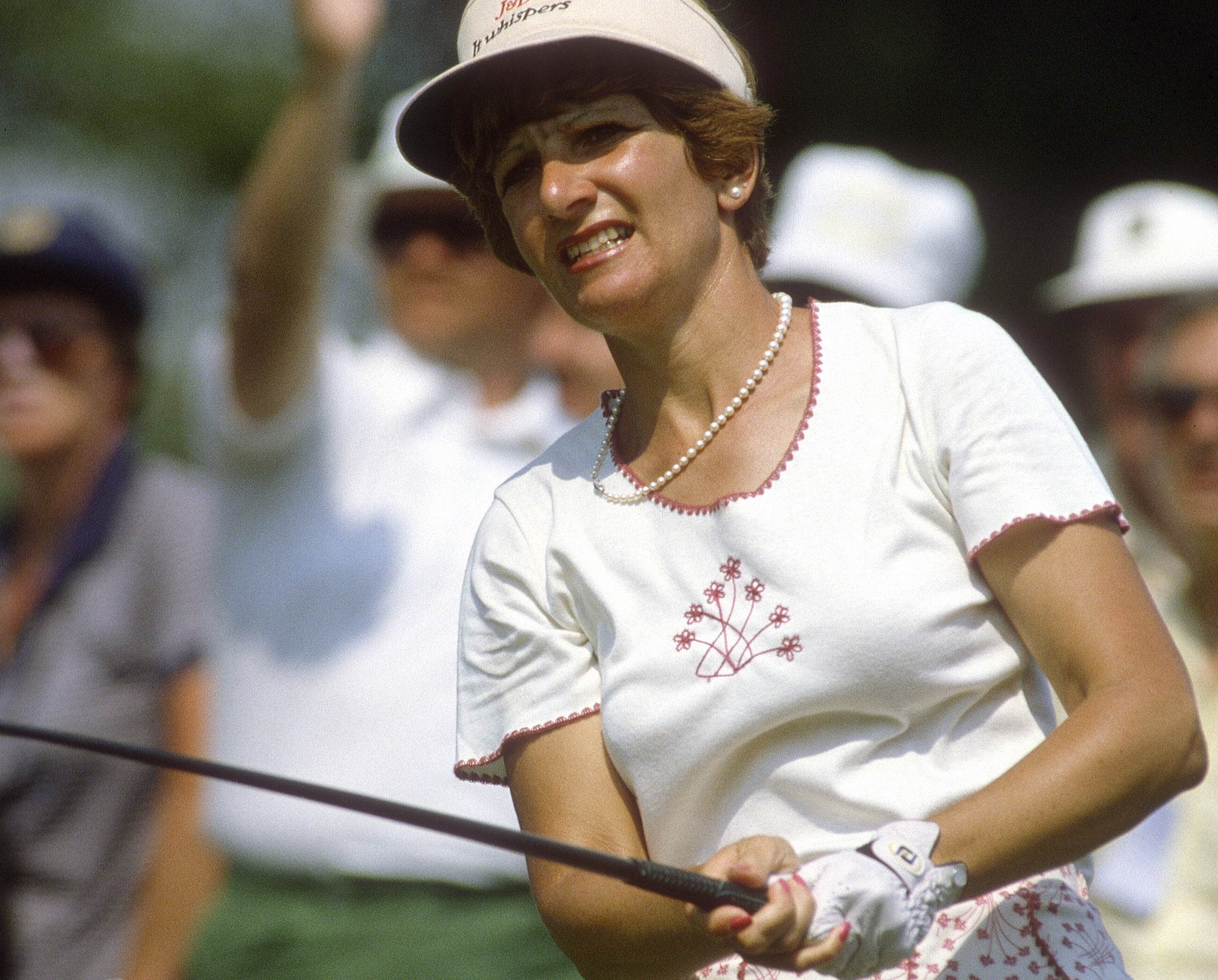
In 1970 she won the U.S. Women’s Open at Muskogee Country Club in Oklahoma, which was a successful defence of her 1969 title, thus becoming the second golfer to win back-to-back U.S. Women’s Opens after Mickey Wright had done so in 1959. She won the LPGA Championship in 1979 at the Jack Nicklaus Golf Center in Ohio, the third of her four Major wins. From 1971 to 1981 she competed as Donna Caponi-Young, before reverting to being called Donna Caponi.
Andy North
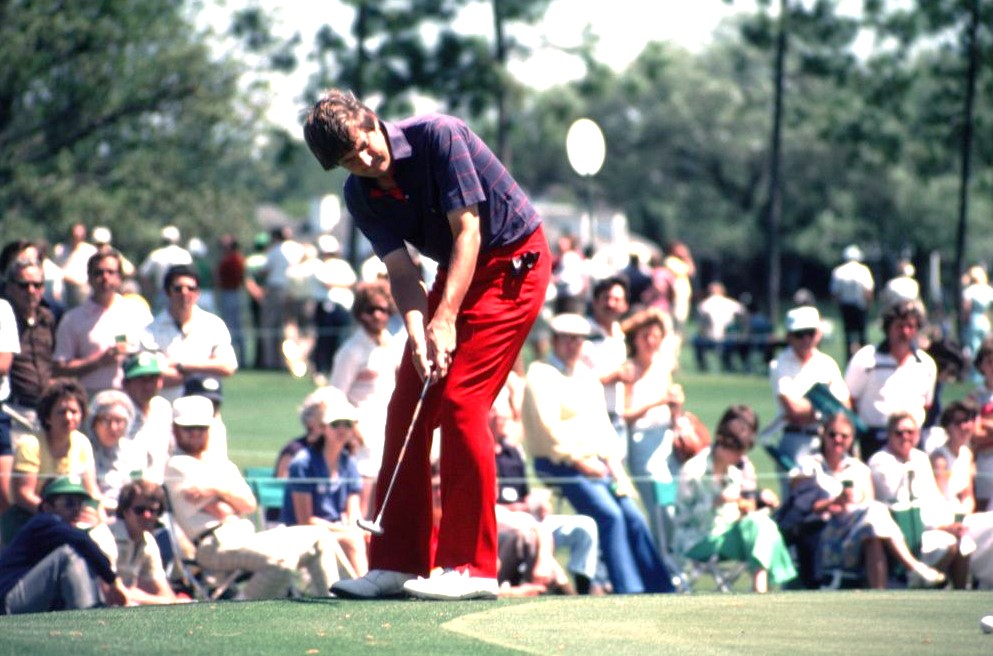
Andy North only won three times on the PGA Tour, yet two of his victories were in the U.S. Open. The first of these was in 1978, his second tour victory. North was the leader after the second and third rounds, and he held on during a final round in which he made five bogeys, a double bogey and four birdies. His putting won it for him – he had only 114 puts across the 72 holes. He was not to win again on tour until the 1985 U.S. Open. He won the World Cup with John Mahaffey in 1978.
Neil Coles
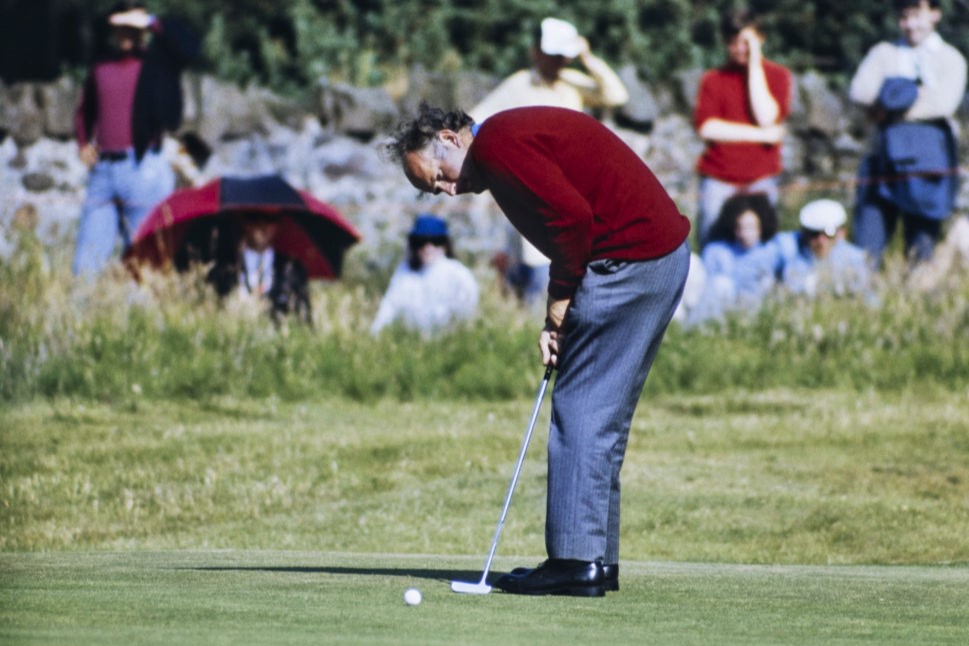
Neil Coles won seven events in 1970 and won the Harry Vardon Trophy that year, the precursor to the European Tour Order of Merit award. He was runner up for this in 1971, when he won four times. He was 37 when the European Tour was formed, in 1972, but still won on this tour in 1972, 1973 (twice), 1974, 1976 and 1977. The only Major he ever played in was the Open Championship, and his best finish in this was joint runner up to Tom Weiskopf at Troon in 1973.
Lou Graham
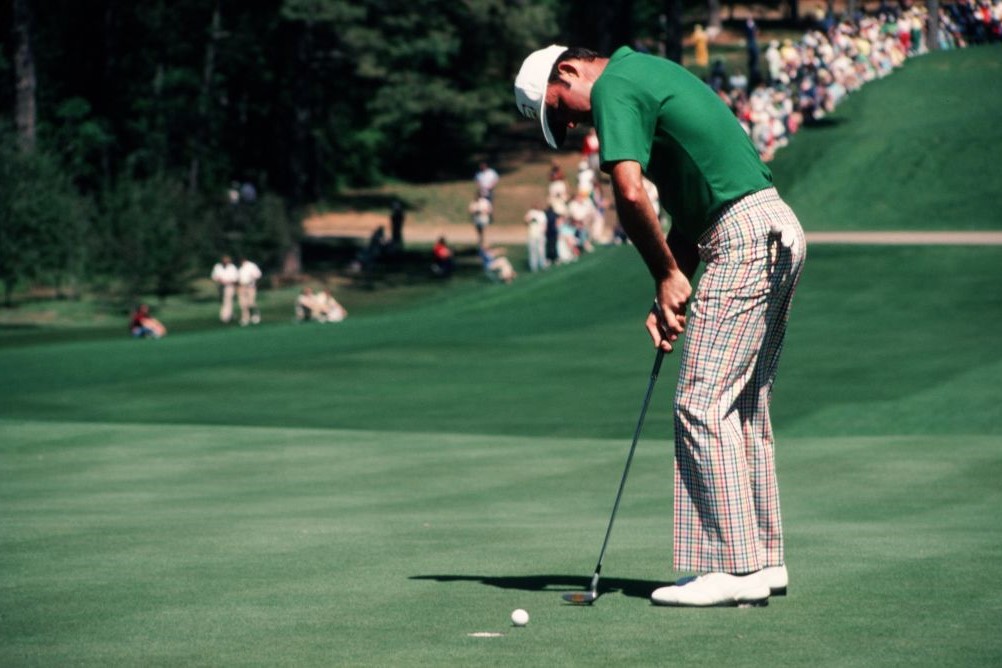
Born in Nashville, Tennessee, Lou Graham started playing golf as a seven year old. He won the U.S. Open in 1975 at Medinah Country Club in a playoff and narrowly missed out on successfully defending his title, coming second the following year, a shot behind the winner. His first 15 years on the PGA Tour brought only three wins, then he had purple patch in 1979 when, in the space of 11 weeks, he won three more times. He was also part of the winning World Cup team in 1975.
Subscribe to the Golf Monthly newsletter to stay up to date with all the latest tour news, equipment news, reviews, head-to-heads and buyer’s guides from our team of experienced experts.
Peter Oosterhuis
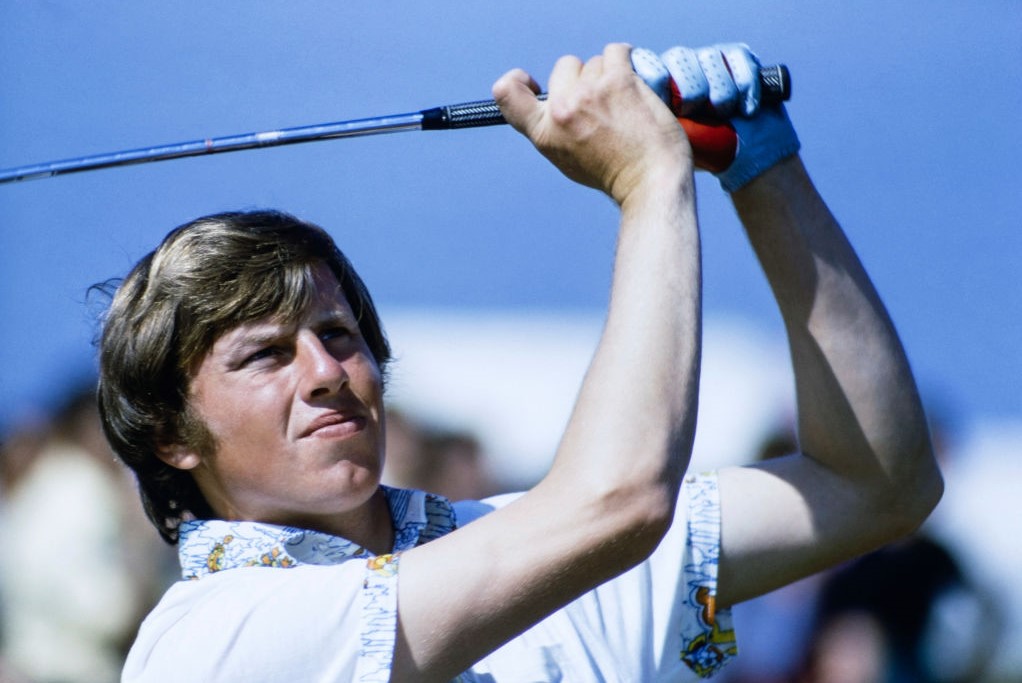
London-born Oosterhuis won the Harry Vardon Trophy for four consecutive years from 1971. From 1972 this meant that he topped the Order of Merit on the newly formed European Tour. His most important win in these years was at the PGA Championship at Wentworth in 1973. In 1975 he moved over to play on the PGA Tour, but was less successful on this, winning only once, in 1981. His best result in a Major was when he was runner up at the Open Championship of 1974.
Sandy Lyle
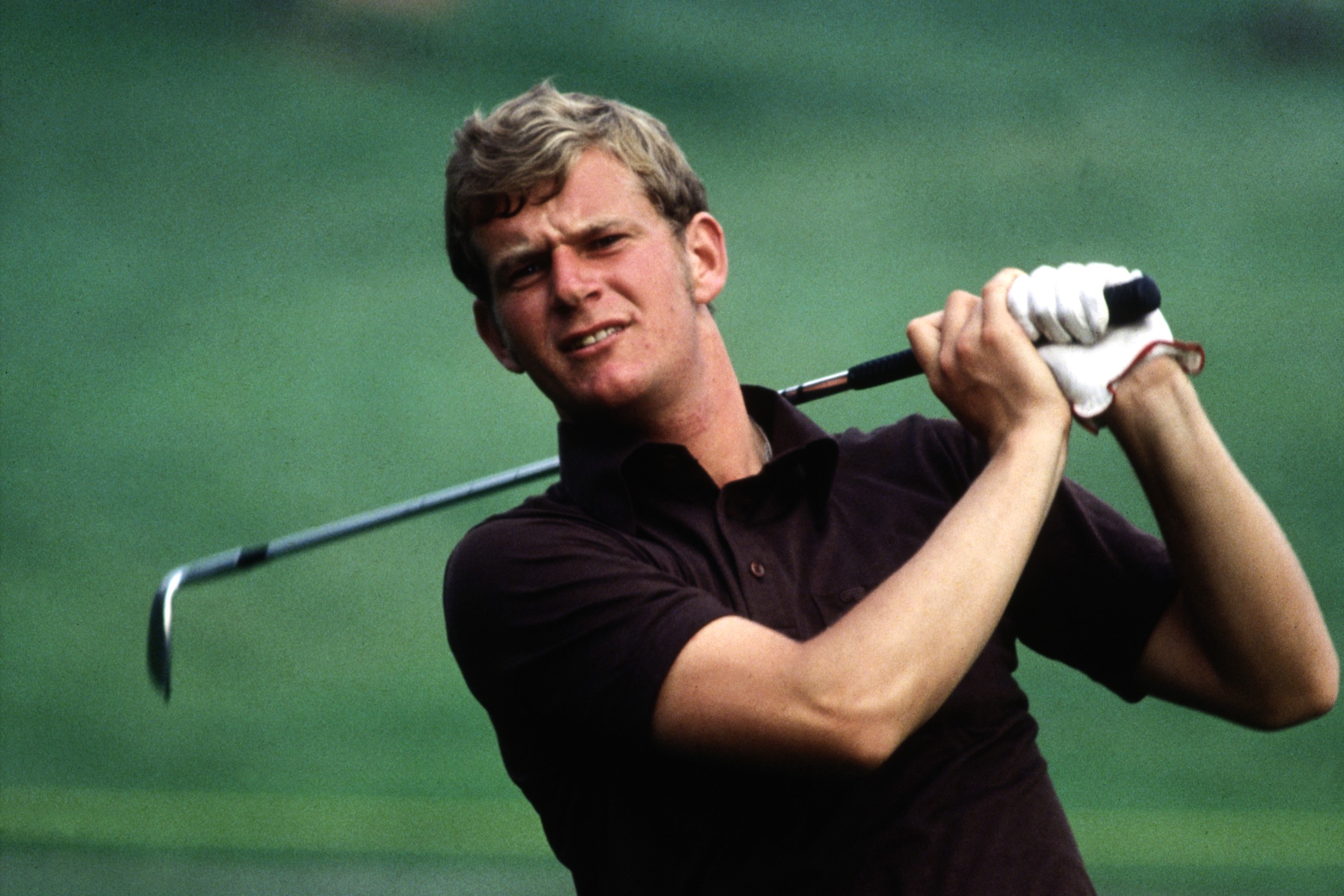
Sandy Lyle was born in Shrewsbury, the son of a club pro. In 1979 Lyle won his first European Tour events, in the B.A./Avis Open at La Moye, which was later renamed the Jersey Open; the Scandinavian Enterprise Open, at Vastorp, and the European Open, which was held at Turnberry. He had the most wins by anyone on the European Tour that season and he topped the tour’s money list with £49,232 which was £1,821 more than second-placed Severiano Ballesteros.
JoAnne Carner
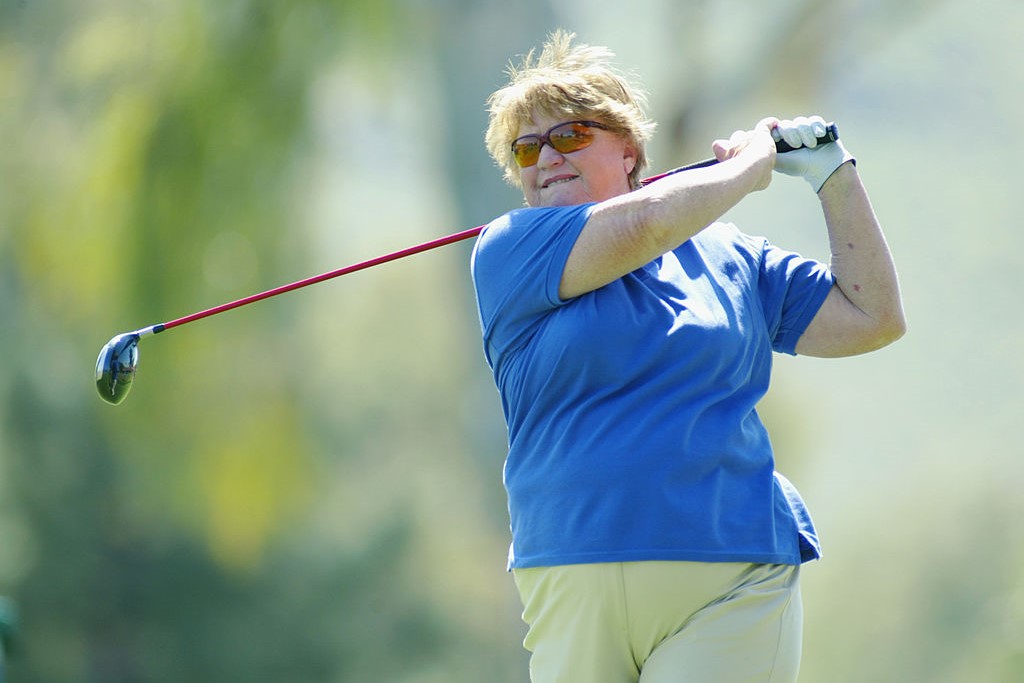
JoAnne Carner (née Gunderson) only turned pro aged 30, but still became the second women golfer to earn a million dollars. Big Mama was LPGA Tour Rookie of the Year in 1970. She won the U.S. Women’s Open in 1971, a wire-to-wire victory which ended with her seven shots ahead of second place; and in 1976, when she won after a playoff. In 1974 she was named LPGA Tour Player of the Year and was LPGA Tour Money Winner and won the Vare Trophy, a trophy she retained in 1975.
Sandra Palmer
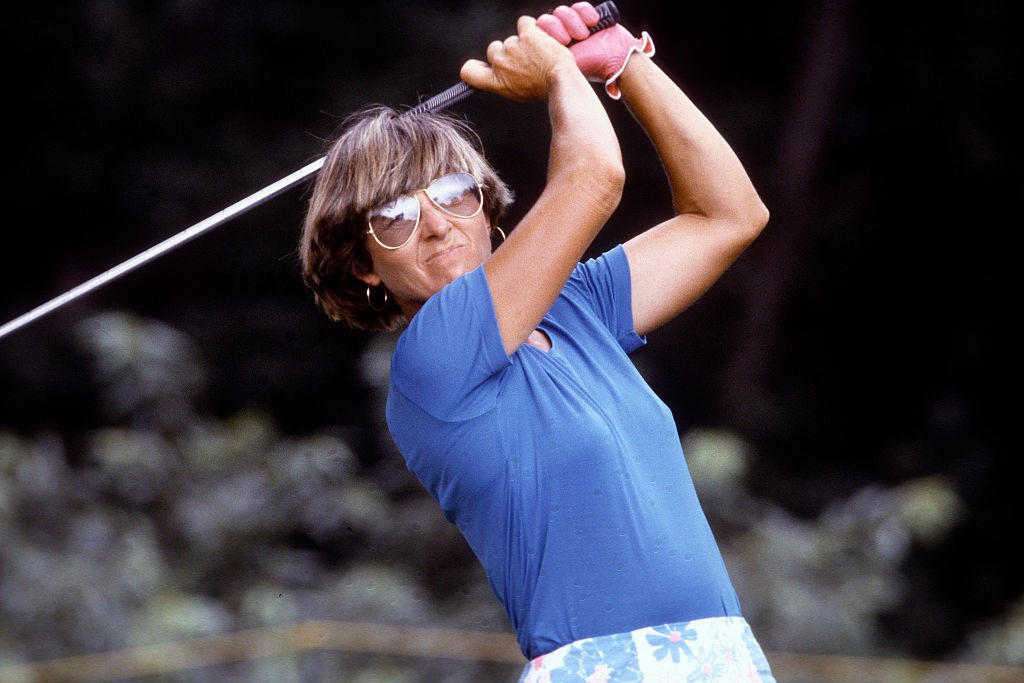
Sixteen of her nineteen LPGA Tour wins came in the Seventies including both of her Major titles. The first was the final Titleholders Championship, which was in 1972 at Pine Needles Lodge and Golf Club in North Carolina. She played the four rounds in one under par, and won by 10 strokes. She also won the U.S. Women’s Open the following year, by four shots. She was the leading LPGA Tour money winner in 1975 when she was also named LPGA Player of the Year.
Hollis Stacy
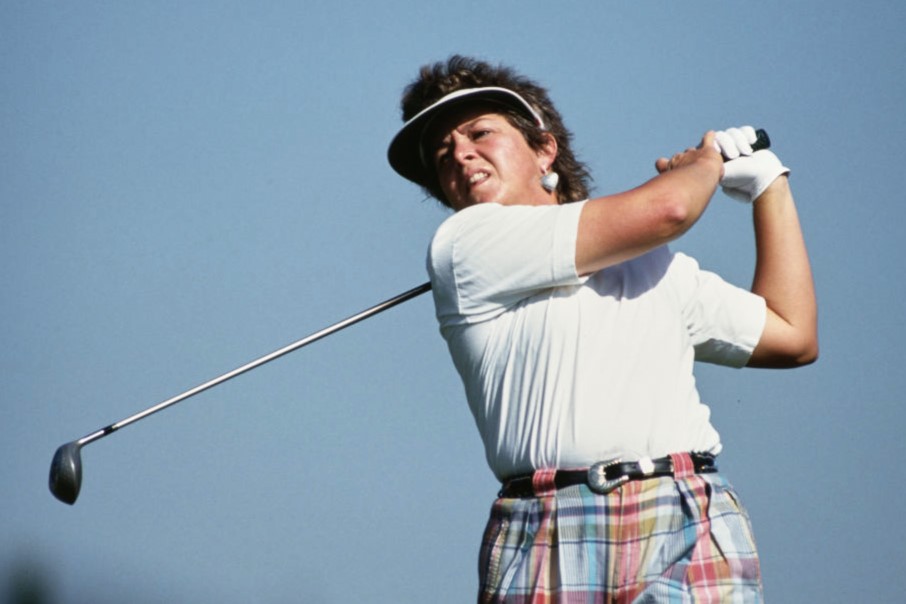
She won the U.S. Girls' Junior in 1969, 1970, and 1971 and played for the winning United States Curtis Cup team at Western Gailes in Scotland, in 1972. She joined the LPGA Tour in 1974 and in May 1977 had her first tour victory. Her second came that July and was in the U.S Women's Open at Hazeltine National, which she won by two shots. She successfully defended her title the following year, at the Country Club of Indianapolis, the second of her four Major victories.
Jerry Pate
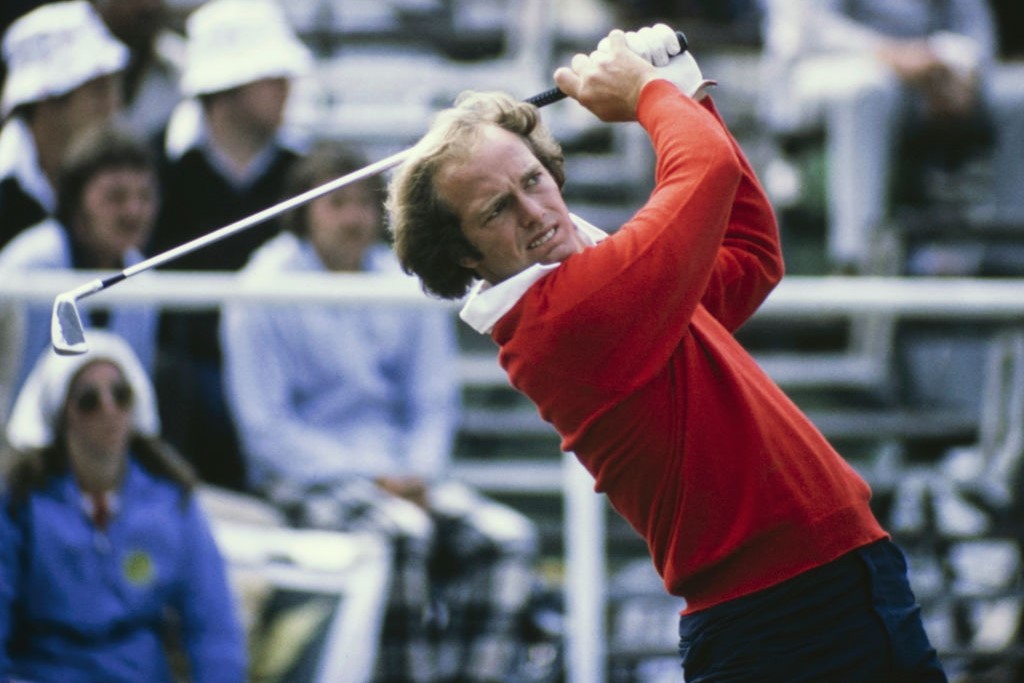
Pate won the U.S. Amateur in 1974 and was part of the U.S. sides that won the Eisenhower Trophy that year and the Walker Cup the following year. In 1975 he also tied for Low Amateur at the U. S. Open. He then turned pro and in his rookie season on the PGA Tour, aged 22, won the U.S. Open. The next month he won the Canadian Open, with a closing round 63, and two more wins came in 1977, and in 1978 he successfully defended the Southern Open title he won in 1977.
Susie Berning
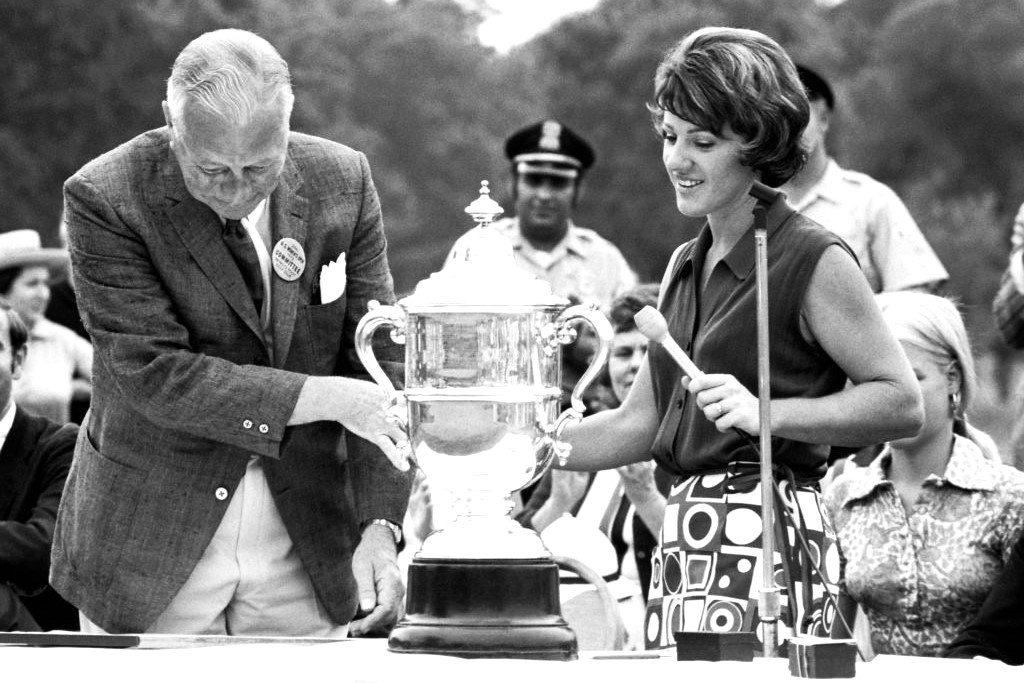
Petite and 5ft 2in, Susie relied upon her short game to compensate for her lack of strength. As her coach U.C. Ferguson explained: “She practised all day long. She practised her short game an awful lot. She earned her success.” She won 11 times on the LPGA Tour. This included four Majors, the last two of which were the U.S. Women’s Opens of 1972 and 1973. She played under her maiden name of Maxwell until 1968, so is sometimes referred to as Susie Maxwell Berning.
Hubert Green
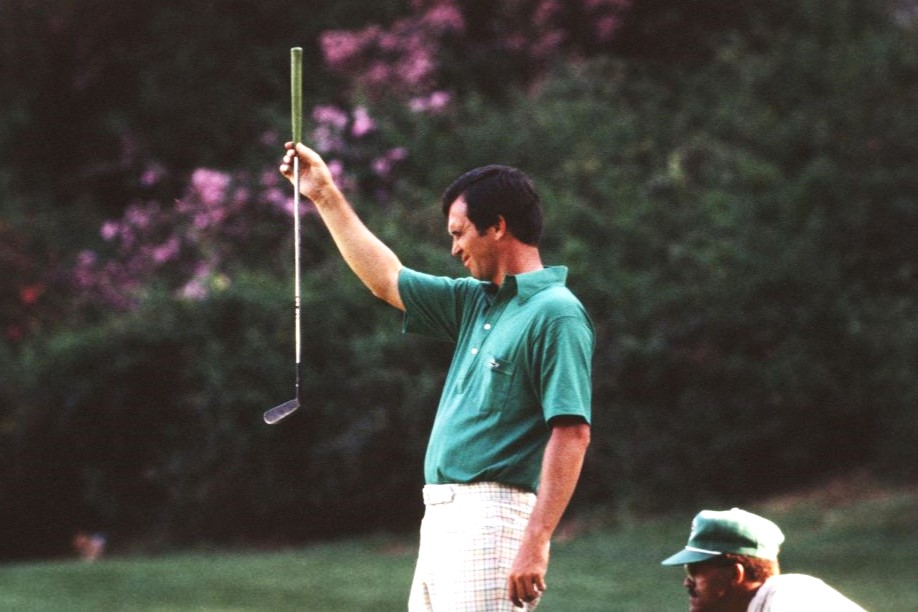
Walking off the 14th green in the final round of the 1977 U.S. Open, leader Green was informed that the FBI had been told he would be shot on the 15th green – did he want to carry on? His tee shot on 15 was a duck hook which only avoided going out of bounds by hitting a tree. He scrambled par and, followed by armed police, finished the round as the winner. It was one of his 16 PGA Tour wins in the 70s; he also won that decade on the European and Japanese tours. He won the U.S. Open again in 1985.
Lanny Wadkins
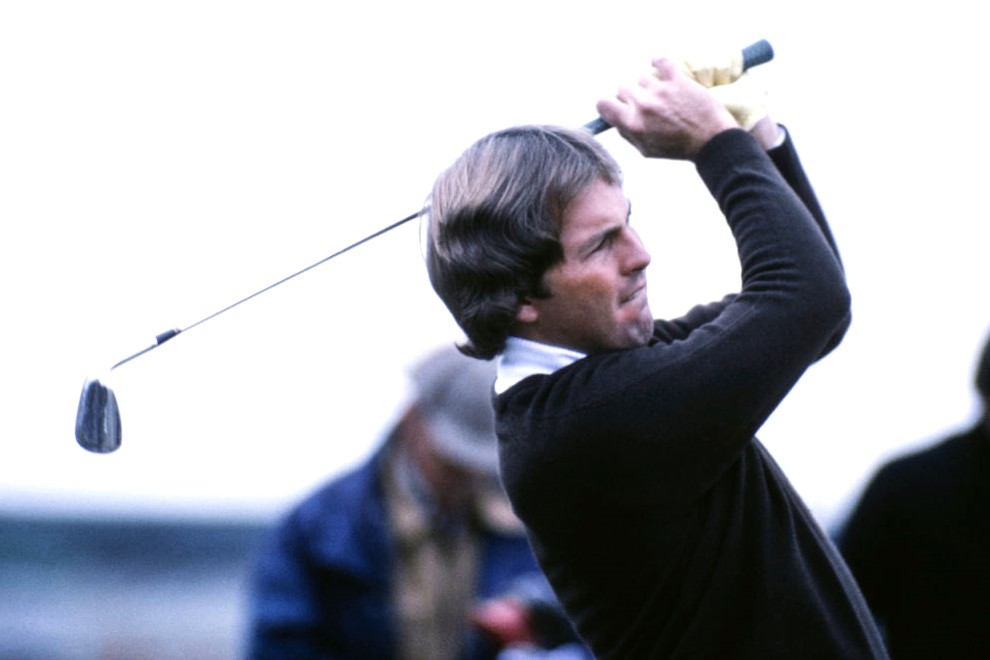
Jerry Lanston Wadkins turned pro in 1971 and was named the PGA Tour’s Rookie of the Year in 1972. His fourth PGA Tour victory, and his first for almost exactly four years, was the PGA Championship of 1977 at Pebble Beach. Six shots behind leader Gene Littler entering the final round, Wadkins shot 70 to Littler’s 76, and won the subsequent sudden-death playoff on the third extra hole. He won the Tournament Players Championship in 1979 by five strokes.
Sandra Haynie

“One reason that golf appealed to me was that I was an only child,” Haynie has explained. “I didn’t need anyone else to play golf.” She was introduced to golf by her father, a scratch golfer. She turned pro when she was 18 and won 42 times on the LPGA Tour. In 1974 she won the LPGA Championship and, a month later, the U.S. Women’s Open by a shot when she made a 70ft birdie putt on the 71st hole and a 15ft one on the 72nd. In all, she won four Majors.
John Mahaffey
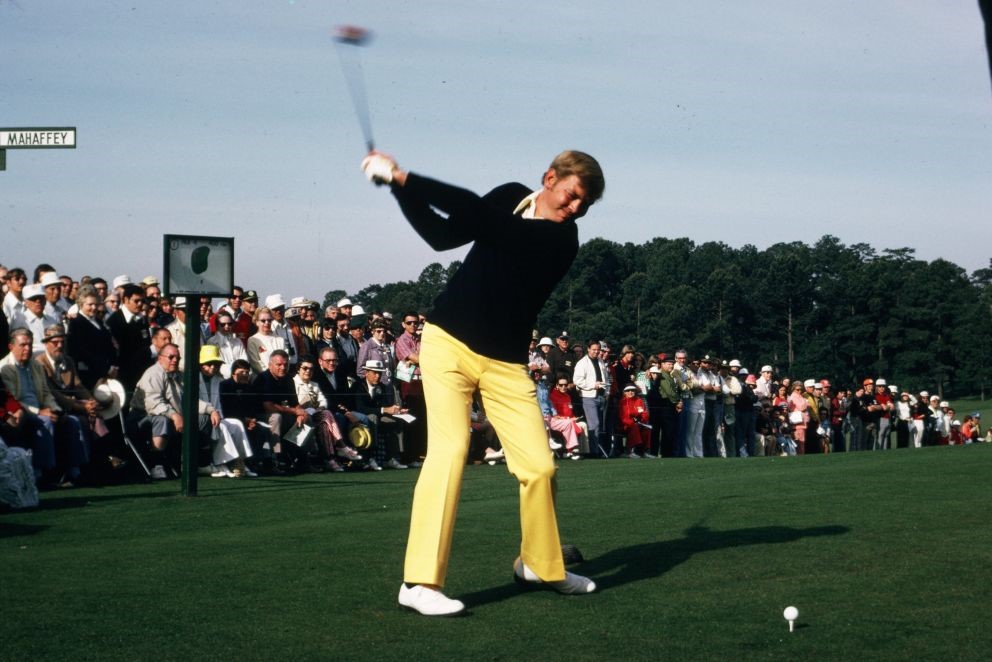
Texan Mahaffey twice came close to winning the U.S. Open. In 1975 he lost a playoff to Lou Graham, and the following year he lead by two shots going into the final round, but his 73 left him tied fourth. He finally won a Major when he secured the PGA Championship in 1978. Seven shots behind leader Tom Watson after the third round, he was still seven shots adrift with 14 holes to go, but his final round 66 forced a three-way playoff with Watson and Jerry Pate, which he won with a birdie on the second extra hole.
Fuzzy Zoeller
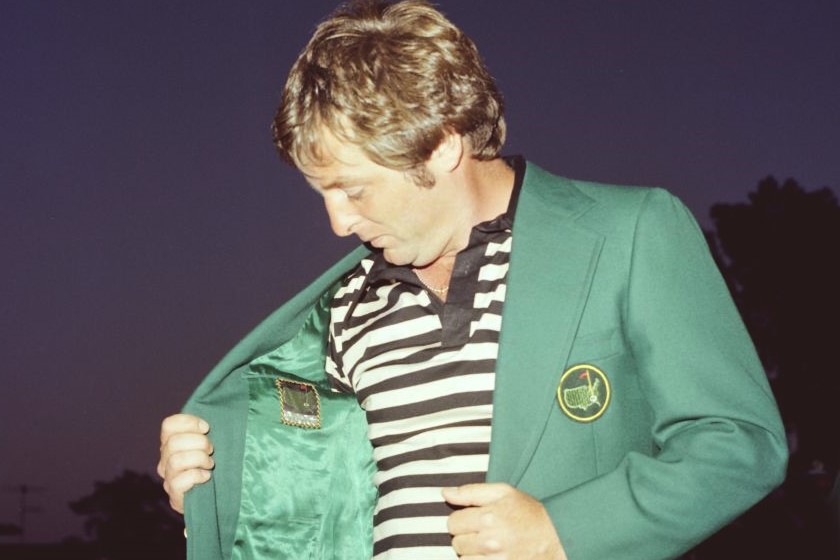
Zoeller was 27 years old and had only won once on tour when he played his first Masters in 1979. He was not in the top 10 at Augusta at halfway, but a third round 69 took him to tied 4th, but six shots behind leader Ed Sneed. When Sneed shot a final round 76, Zoeller ended in a three-way playoff with Sneed and Tom Watson, which Zoeller won on the second extra hole. The Indiana native had become the first man since the second Masters in 1935 to win on his first Masters appearance.
David Graham
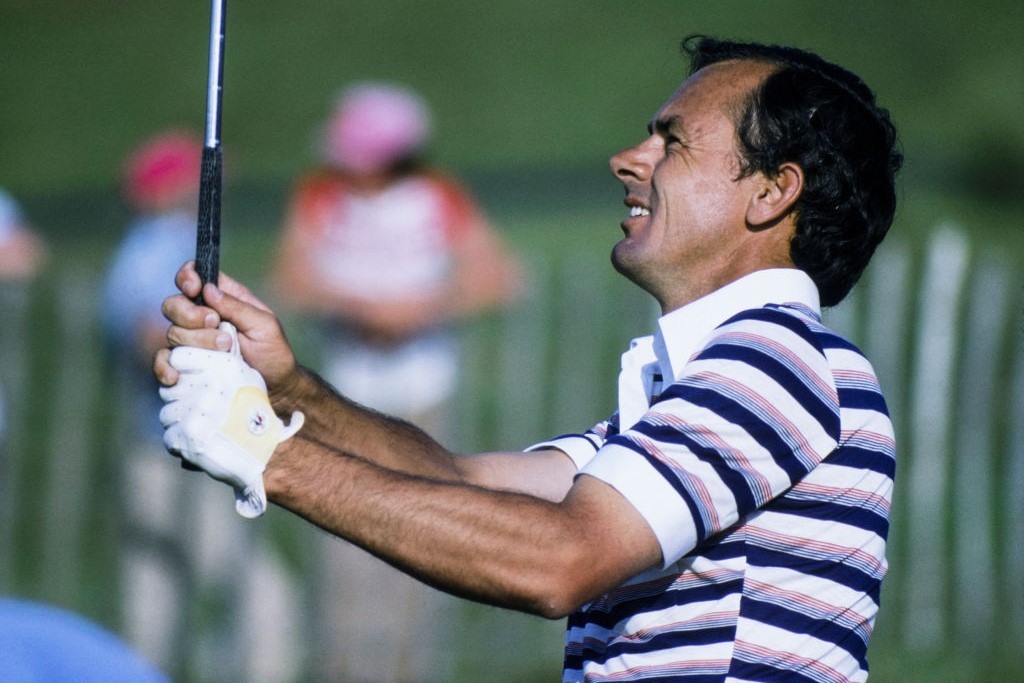
At the 1979 PGA Championship Australian David Graham was in a three-way tie for third going into the final round, four shots behind the leader. In the first 15 holes of his final round he made seven birdies, but a double bogey on the 18th meant he ended up in a sudden death playoff. He made an 18ft putt on the first extra hole to save par and tie the hole. A birdie on the 3rd hole won him the title. Naturally left-handed, he played golf right handed.
Billy Casper
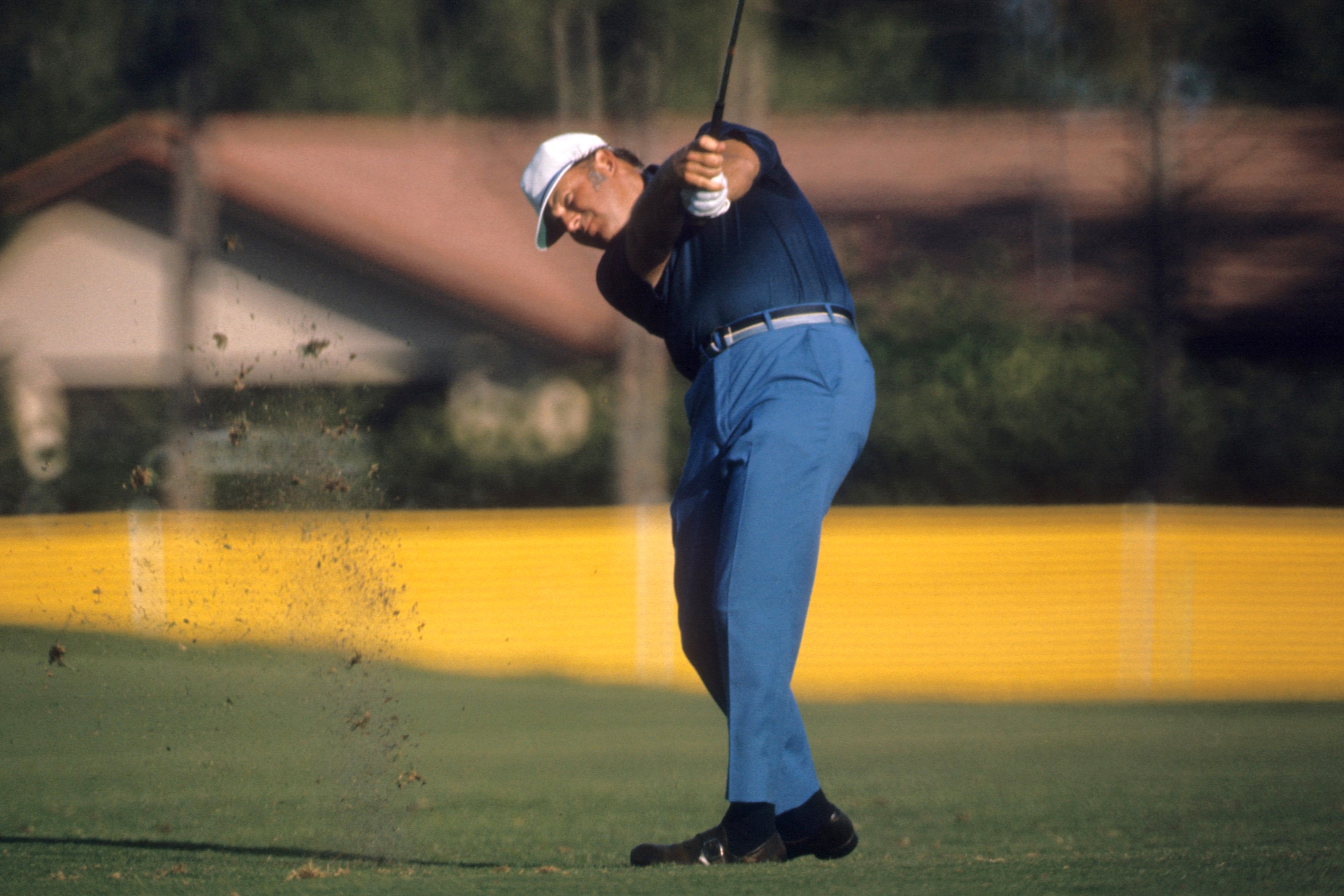
In what was the last 18-hole playoff for the Masters, before the format was changed to sudden death, Billy Casper won at Augusta National in 1970, overcoming Gene Littler 69 to 74. It was his third and final Major win, which had all come in different decades. He had also won the 1966 U.S. Open in an 18-hole playoff, defeating Arnold Palmer. He won four times in 1970 and was named PGA Player of the Year. Regularly outdriven by his competitors, he was one of the best putters of his era.
Dale Hayes
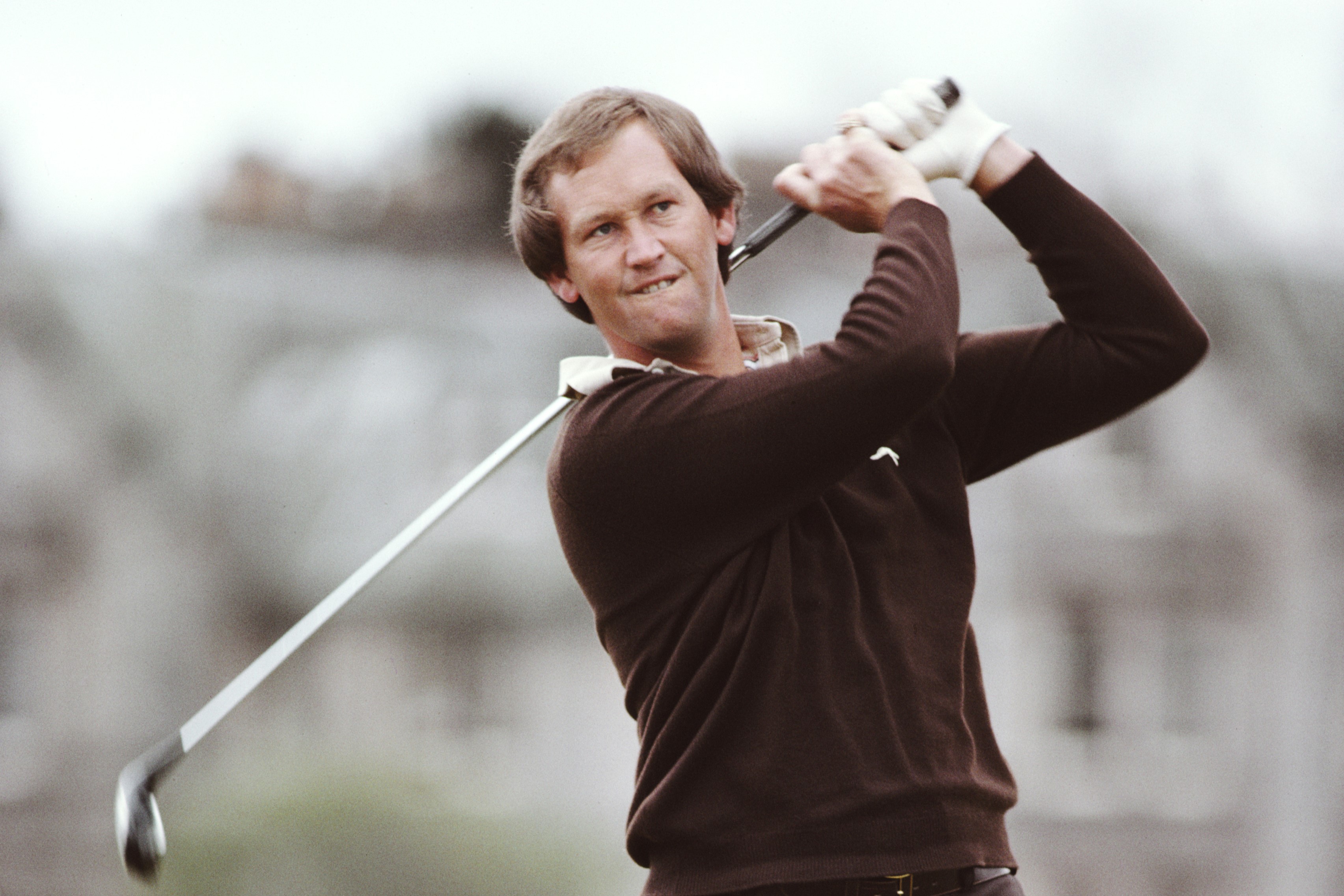
South African Hayes won the South African Amateur Stroke Play Championship and Scottish Amateur Stroke Play Championship in 1970. He won 17 times on the South African Tour in the 1970s. He also won several times in Europe, including the Spanish Open, in 1971, as an 18 year-old, and the 1979 French Open, which he won 11 strokes clear of second-placed Seve Ballesteros. He won the South African Tour Order of Merit in 1972/73 and 1976/77 and the European Tour Order of Merit in 1975.
Tony Jacklin
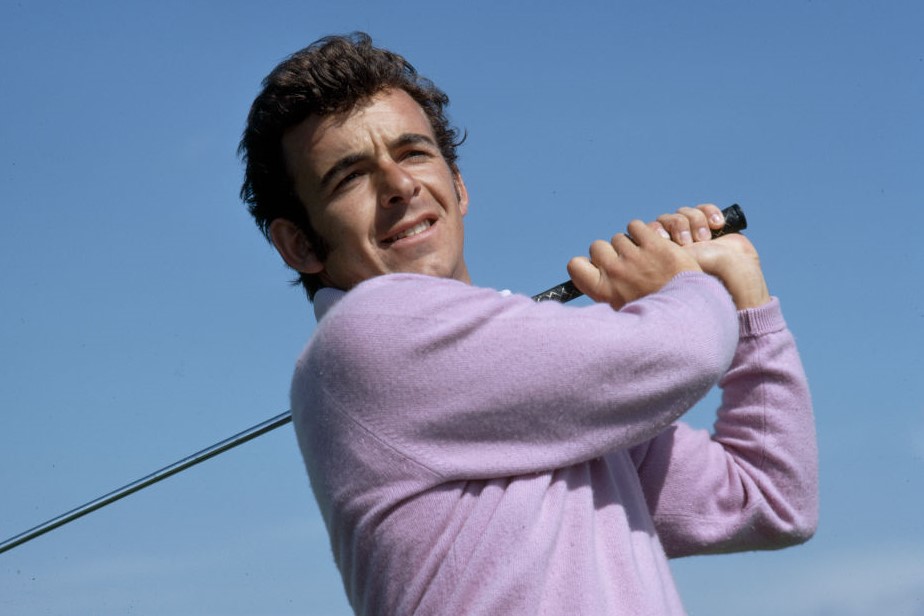
Jacklin won the U.S Open in 1970 with all four rounds under par. He was the only person to play the first round, in winds gusting up to 40mph, under par. Indeed, only three five other players went round in under 75 that day at par-72 Hazeltine National. He was a wire-to-wire winner and his margin of victory was seven shots. He was only the second non American to win the U.S. Open since 1925. Open Champion in 1969, he came fifth, third and third in The Open in the first three years of the Seventies.
Dave Stockton
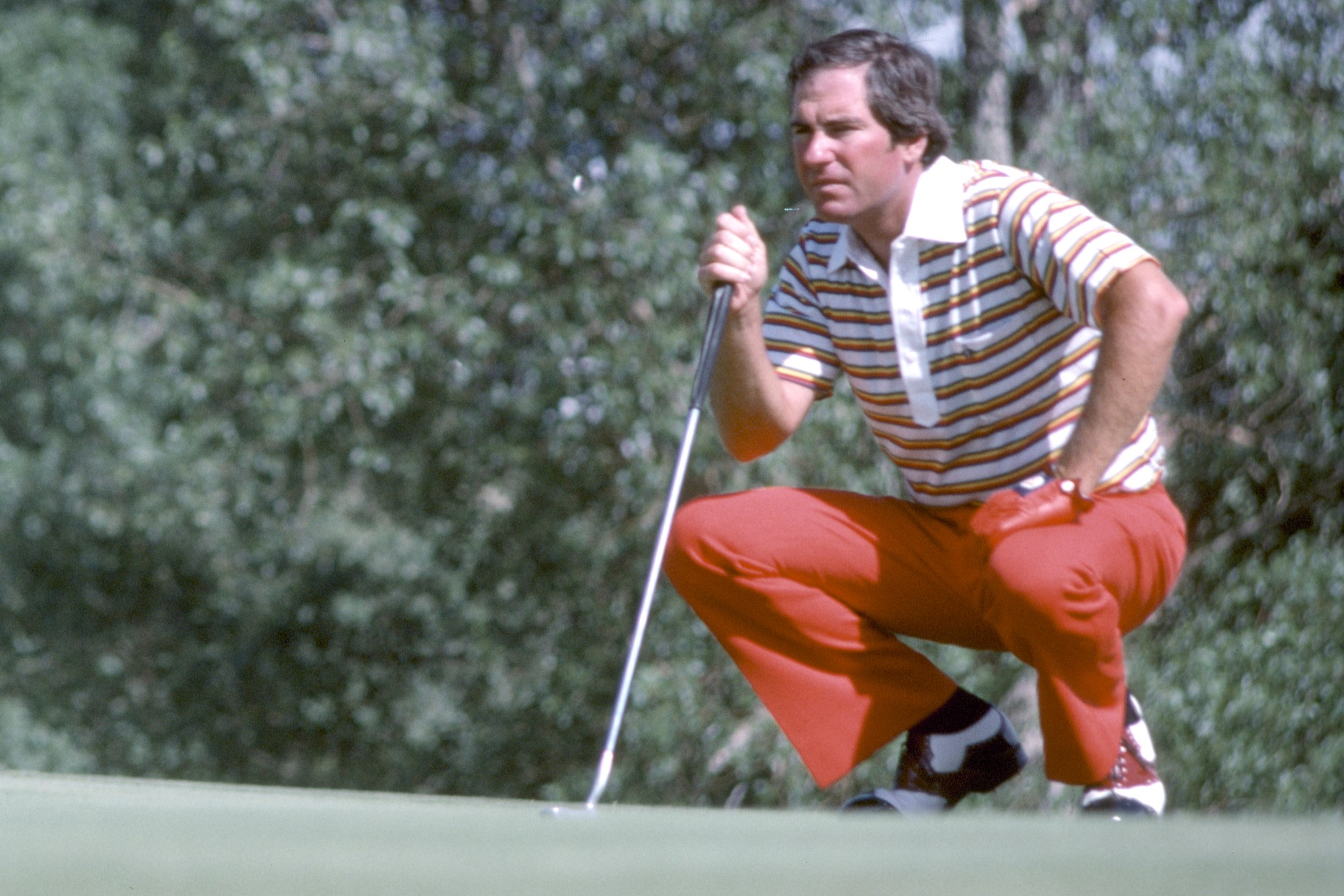
Dave Stockton won the PGA Championship in 1970 and 1976. In 1970 at Southern Hills in Oklahoma he was joint leader after the second round and outright leader after the third round which was played in 101°F (38°C) heat, and ended up winning by two shots. In 1976 he holed a 15ft putt on the 72nd hole to win, and avoid a three-way playoff. That was his last win on the PGA Tour. His most successful year in tour was 1974 when he won three tournaments.
Kathy Whitworth
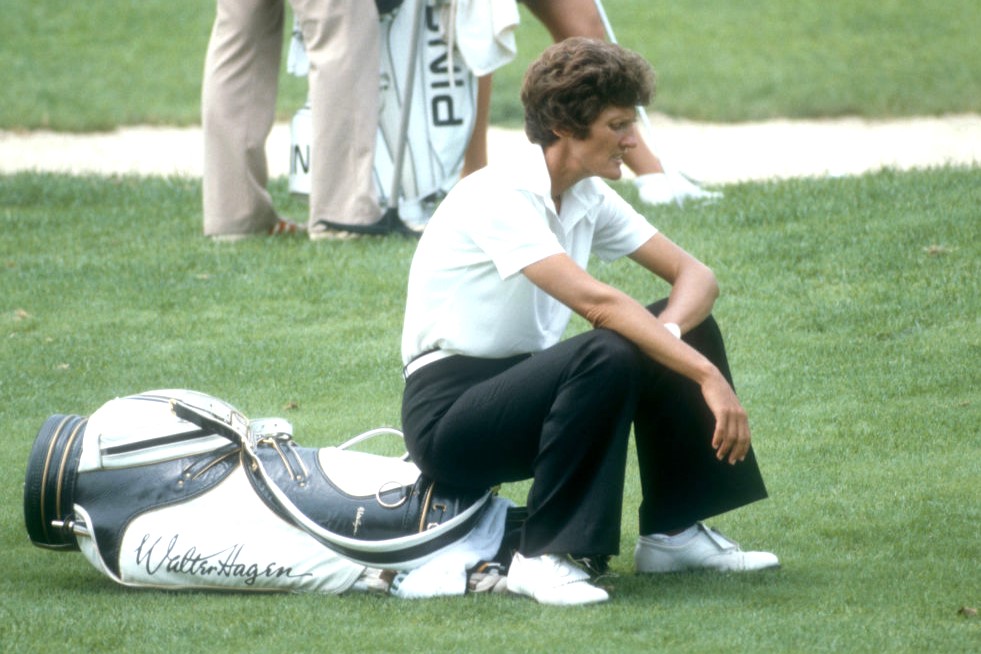
During her career Kathrynne Whitworth won 88 times on the LPGA Tour, setting a record. She was also runner up on 91 occasions. She was the first golfer to reach $1m career earnings on the LPGA Tour. Tennis had been her early sporting interest, and she only took up golf aged 14. She won six LPGA Majors, the last two of which were the LPGA Championship of 1971, which she won by four shots, and the 1973 LPGA Championship, which she won by a stroke from defending champion Sandrie Haynie.
Tom Weiskopf
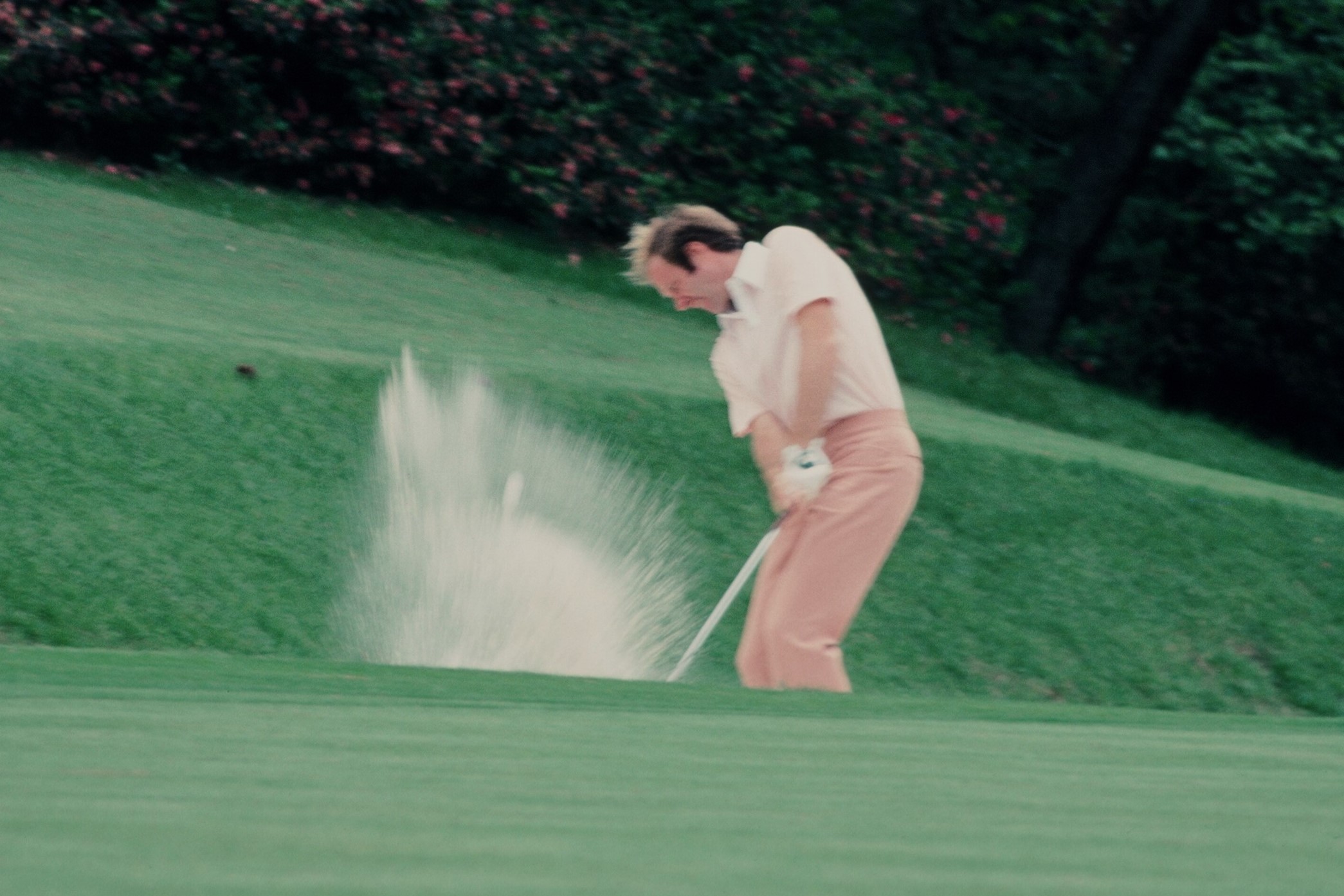
He and Jack Nicklaus are the only golfers to play in every Major Championship of the 1970s. He had 11 top-five finishes in Majors in this decade, but won only once. He was a runner up four times. His win came at Troon in 1973 and was a wire-to-wire one and his 12-under-par 276 equalled the then lowest total for four rounds in an Open Championship, a record that Arnold Palmer had set in 1962, also at Troon. Weiskopf won the World Match Play in 1972.
Seve Ballesteros
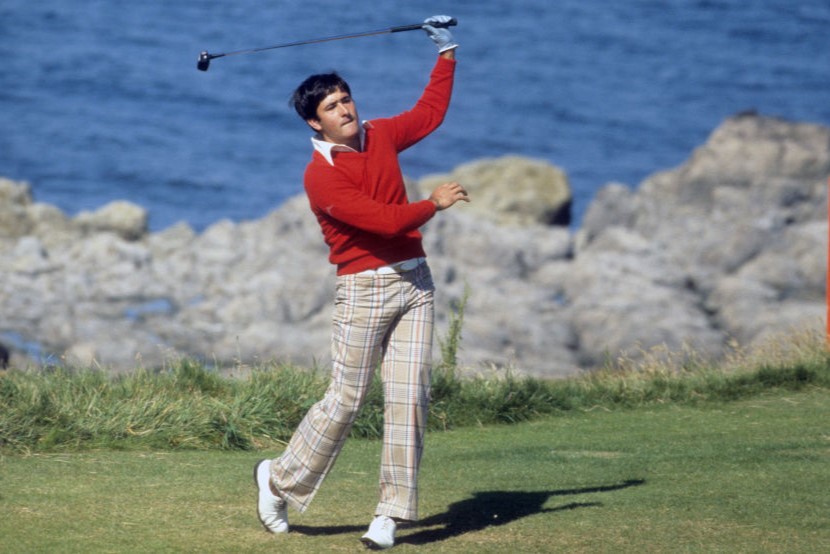
The Spaniard claimed his first European Tour event in 1976, aged 19, when he won the Dutch Open by eight strokes. That season he finished runner up at The Open at Royal Birkdale, having led the field after the second and third rounds. He won ten times on the European Tour in the 1970s, the last of which was The Open in 1979 at Royal Lytham & St Annes by three shots, at 22, the youngest winner since 1893. He won the European Tour Order of Merit in 1976, 1977 and 1978.
Johnny Miller
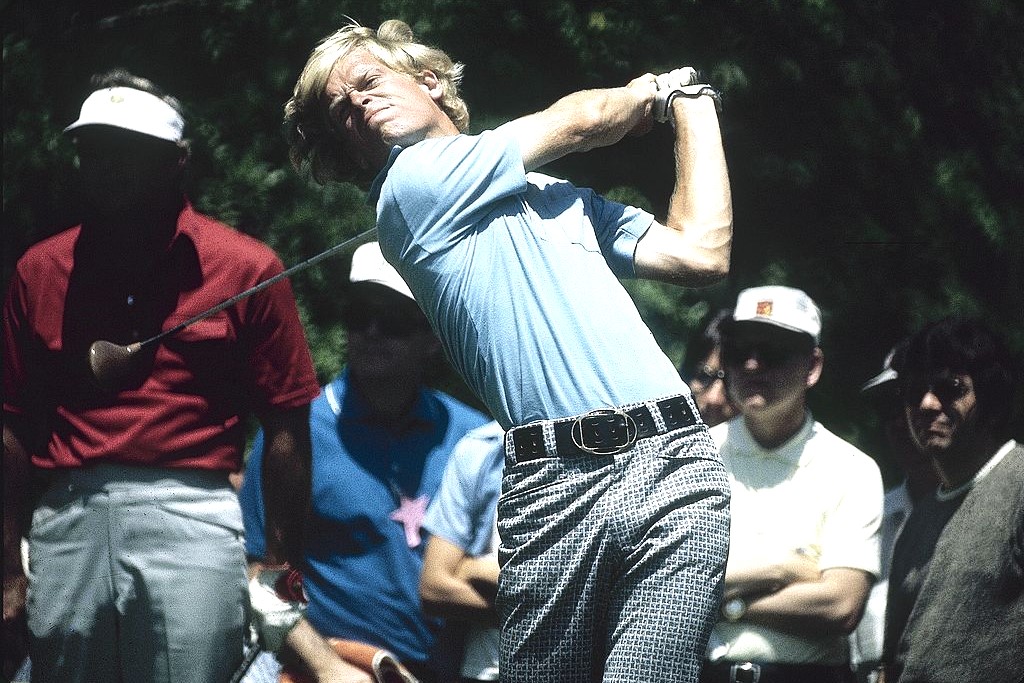
When he won the Tuscon Open by nine shots in 1975 he reckoned: “the average iron shot I hit that week was no more than two feet off line. When I was at my peak, I would go into streaks where I felt that I could knock down the pin from anywhere with my irons. I played some golf that I think is unequalled.” He was the first to record a round of 63 in a Major when he won the U.S. Open in 1973. He won The Open in 1976, but finished the decade afflicted by putting yips.
Hale Irwin
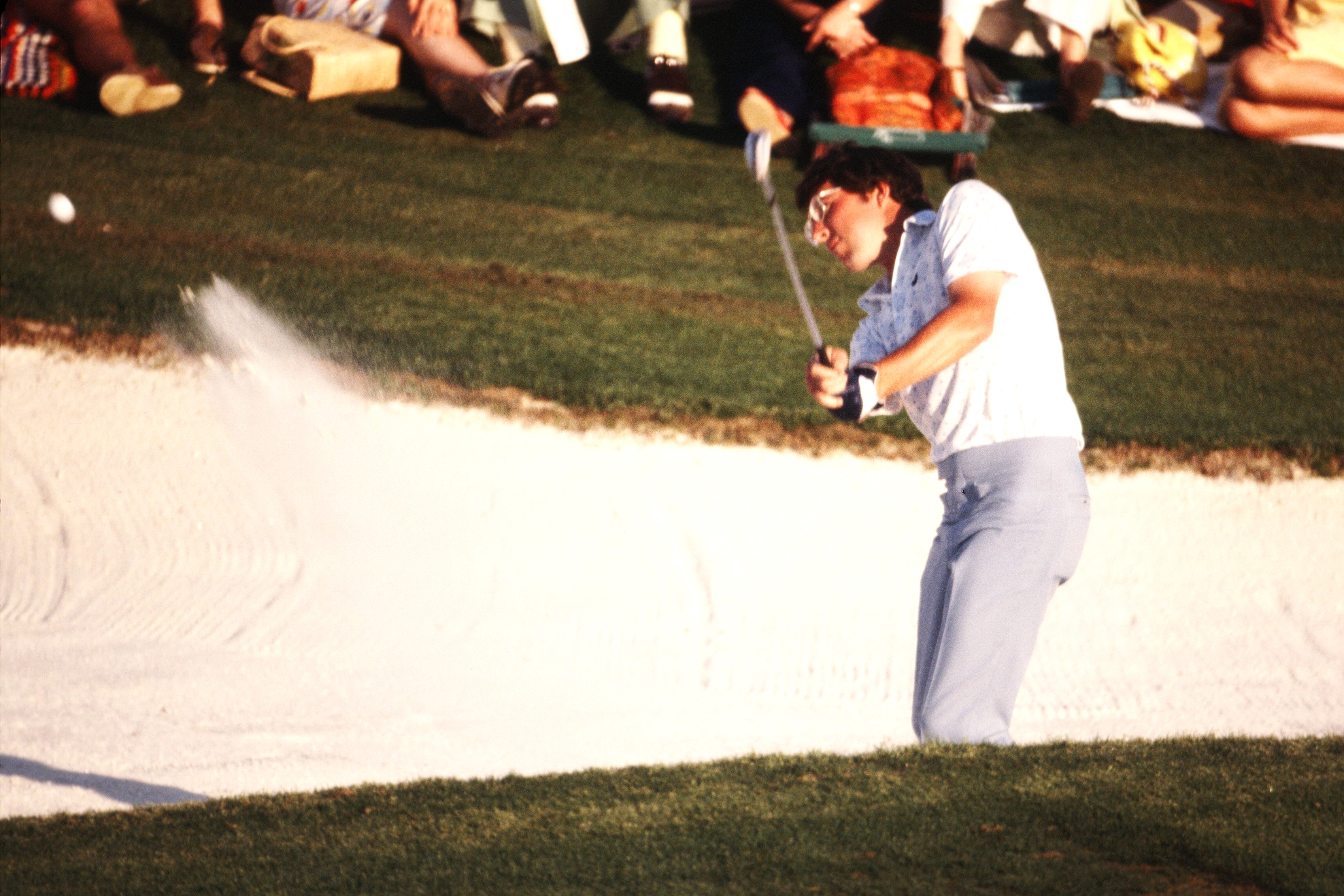
Three weeks before the U.S. Open of 1974, Irwin had a dream where he won. Three weeks later, he shot a seven over par 287, which was enough for victory. Sports Illustrated reported it was won by “hardworking Irwin who, day after day, kept hitting his trusty two-iron and his trusty sand wedge, hanging in, hanging on.” He won the World Match Play in 1974 and 1975 and lost in 1976 on the second playoff hole. Between 1975 and 1978 he made 86 consecutive cuts on the PGA Tour. He won the U.S. Open again in 1979.
Lee Trevino
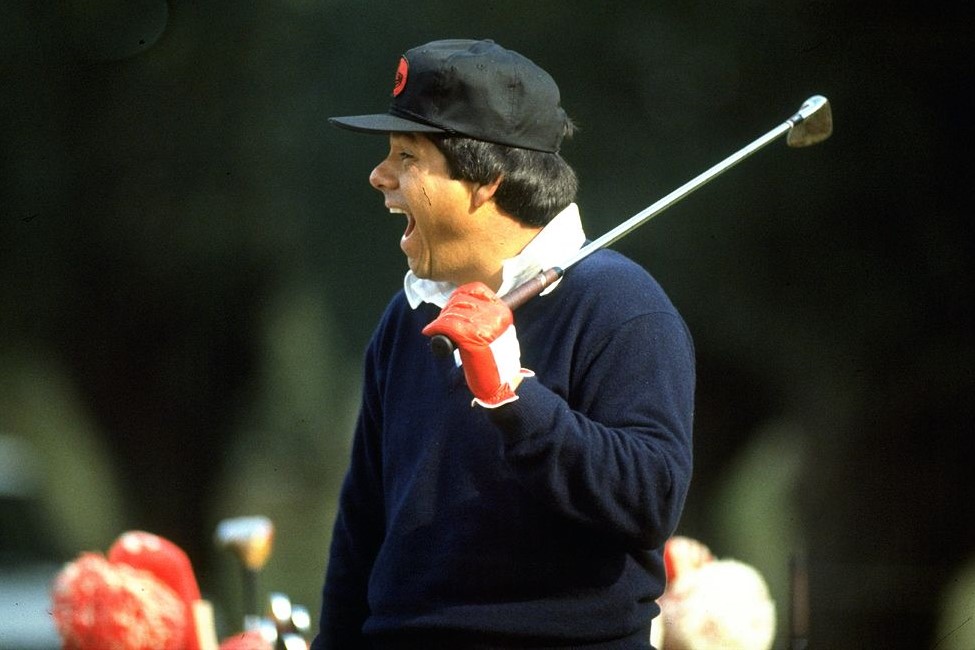
In a three-week period in 1971 Supermex won the U.S. Open, beating Jack Nicklaus in an 18-hole playoff, the Canadian Open and the Open Championship at Royal Birkdale. He defended the latter title successfully the following year at Muirfield, winning by a shot after four times holing out from off the green. He won the PGA Championship in 1974. He headed the PGA Tour money list for 1970, was named PGA Player of the Year in 1971 and won the Vardon Trophy in 1970, 1971, 1972 and 1974.
Gary Player
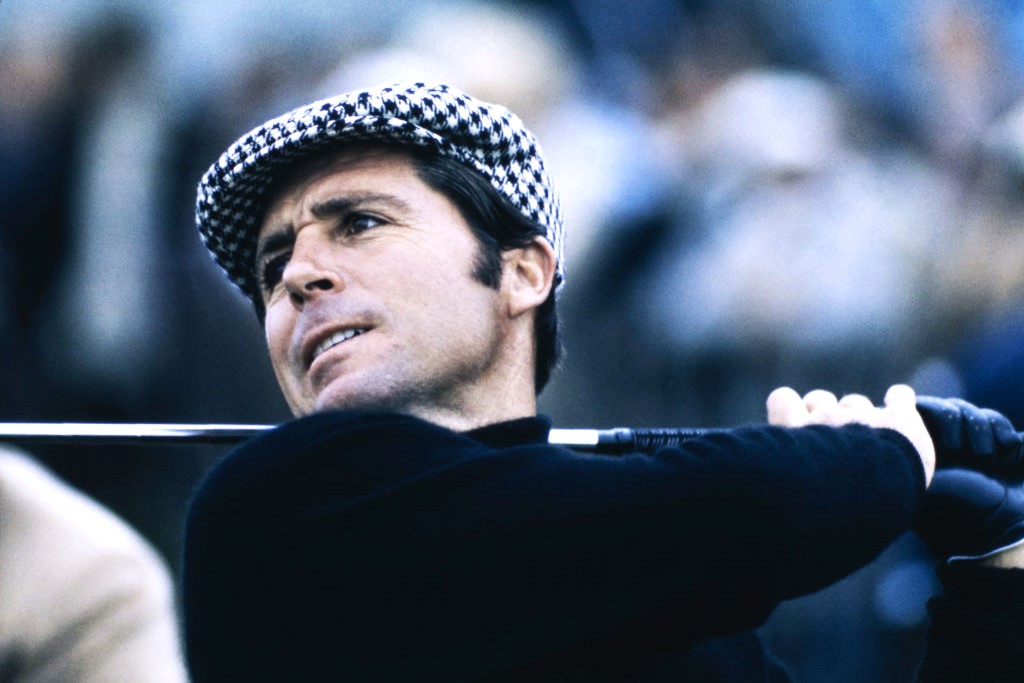
The Black Knight won the last four of his nine Major championship titles in the 1970s: the PGA Championship in 1972; the Masters and the Open Championship in 1974, and the Masters in 1978. In that 1978 Masters the South African had started the final round seven shots adrift of the leader, Hubert Green, but won by a shot through making seven birdies in his last 10 holes. He also won his fourth and fifth World Matchplay titles at Wentworth in 1971 and 1973.
Tom Watson
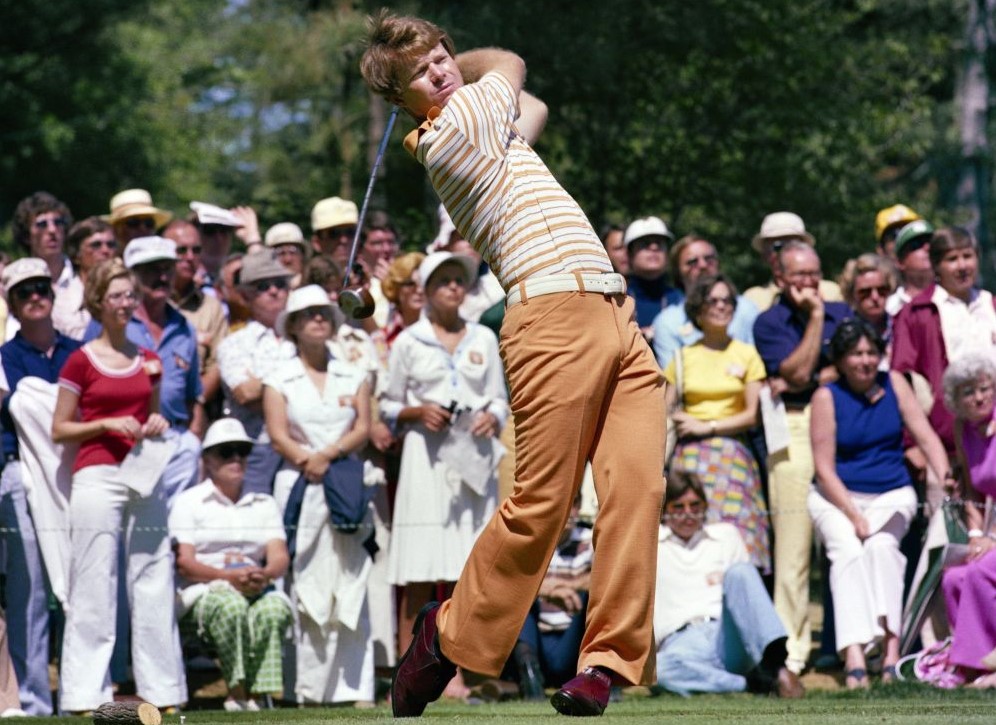
Three of his eight Major championship wins came in the 1970s – the Open Championships of 1975 and 1977 and the Masters of 1977. His one-shot victory over his friend and strong rival Jack Nicklaus at Turnberry in 1977 is now one of the most famous Opens, dubbed the "Duel in the Sun.” Watson topped the PGA Tour money list in the last three seasons of the decade, and in these seasons was also named the PGA Player of The Year and won the Vardon Trophy for lowest scoring average.
Jack Nicklaus
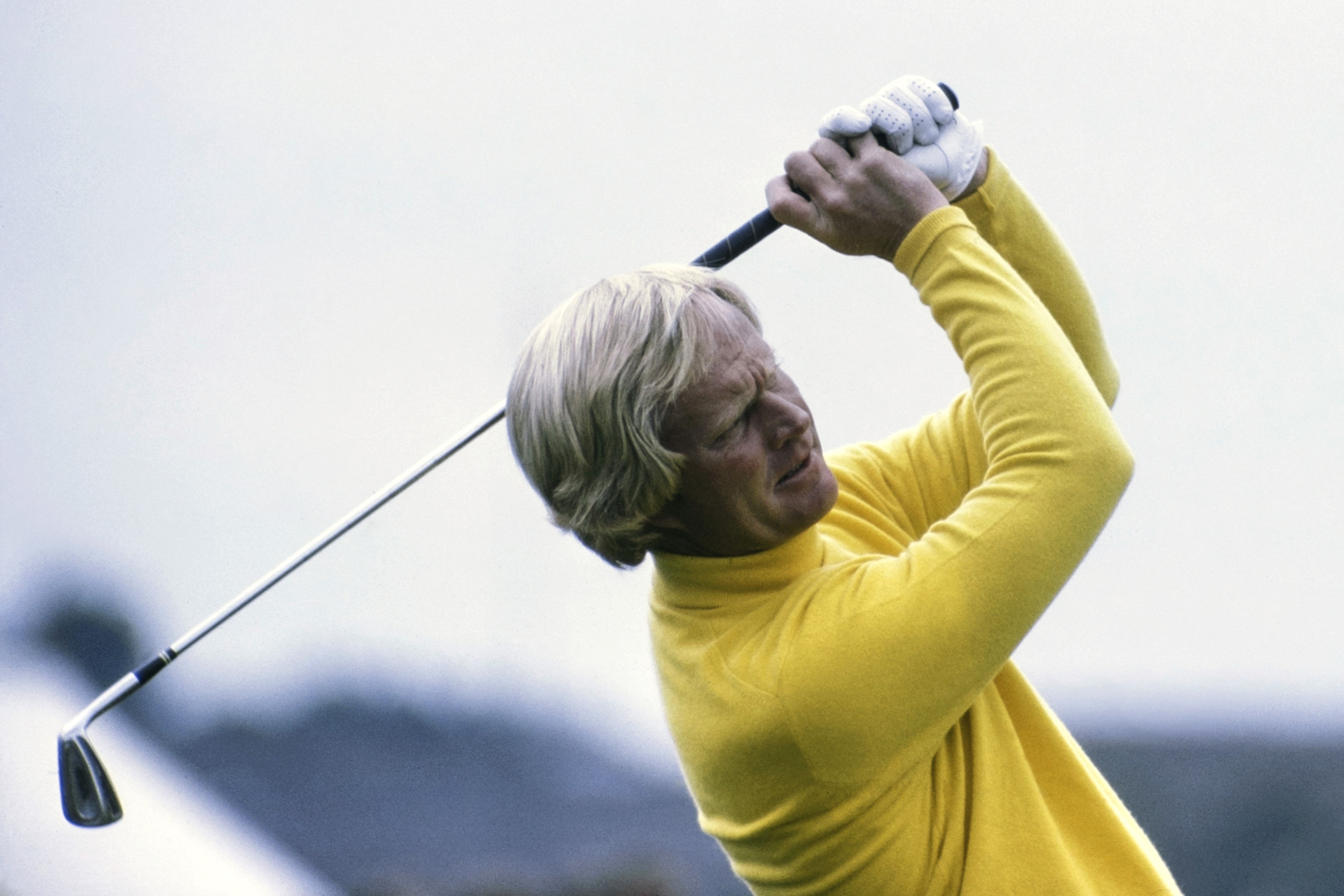
The Golden Bear played in all 40 Majors held during the decade and made the top 10 in all but five of them, and was runner up in seven times and winner eight times. His wins were: The Open Championship in 1970; the PGA Championship in 1971, the Masters and U. S Open in 1972; the PGA Championship in 1973; the Masters and the PGA Championship in 1975 and The Open in 1978. He topped the PGA Tour money list in 1971, 1972, 1973, 1975 and 1976 and was PGA Player of the Year in 1972, 1973, 1975 and 1976.
Contributing Writer Roderick is the author of the critically acclaimed comic golf novel, Summer At Tangents. Golf courses and travel are Roderick’s particular interests. He writes travel articles and general features for the magazine, travel supplement and website. He also compiles the magazine's crossword. He is a member of Trevose Golf & Country Club and has played golf in around two dozen countries. Cricket is his other main sporting love. He is also the author of five non-fiction books, four of which are still in print: The Novel Life of PG Wodehouse; The Don: Beyond Boundaries; Wally Hammond: Gentleman & Player and England’s Greatest Post-War All Rounder.
